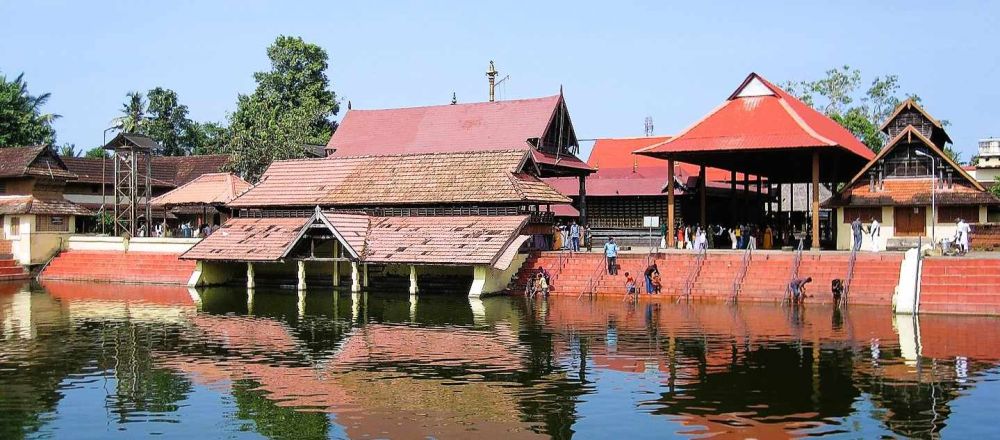

The Ambalappuzha Sri Krishna Temple is an iconic religious edifice in Kerala, India, revered for its rich history and cultural significance. Constructed in the typical Kerala architectural style, this temple has been a pinnacle of worship since the 15th century. The temple is believed to have been established by Chembakasserry Pooradam Thirunal-Devanarayanan Thampuran, the ruler of Ambalappuzha, in the year AD 790.
As the legends go, it is said that, during the 17th century, the temple was the original site of the Guruvayoor Sri Krishna Temple idol. During the Mysorean invasion by Tipu Sultan, the idol was temporarily moved to Ambalappuzha for safekeeping and later reinstated back at Guruvayoor at the end of the invasion in the late 18th century.
The temple is famed for its Palpayasam, a sweet pudding made of rice and milk, which is offered to the deity and served to the devotees. It harbors an interesting tale involving the deity of Guruvayoor and a devotee named Villwamangalam Swamiyar, emphasizing the temple's divine offerings and beliefs interwoven with local lore.
Tourism at Ambalappuzha Sri Krishna Temple has been flourishing due to its religious importance and the enthralling beauty of Alleppey. Apart from being a sacred pilgrimage site, the destination attracts tourists with its serene backwaters and the notable Ambalappuzha Temple Festival held annually, featuring the famous Ambalappuzha Boat Race.
Another highlight is the Chandanakkudam festival, which is marked by the vibrant display of lights, decorations, and musical performances. The temple is also associated with the classical art form of Ottamthullal, which was conceived by the legendary poet Kunchan Nambiar in the temple's courtyard.
In recent years, the temple has seen an integration of cultural experiences with sustainable tourism. The latest trend includes curated cultural immersions where visitors not only visit the temple for its spiritual aura but also engage with the local community to understand the nuances of Kerala's traditions and temple craftsmanship.
Eco-friendly measures and preservation of heritage sites are being emphasized, with greater involvement of local artisans and guides to enhance the visitor experience. Yoga and meditation retreats near the temple premises also cater to the growing demand for wellness tourism, blending spiritual healing with travel.
With its deep historical roots and a growing penchant for sustainable and experiential travel, the Ambalappuzha Sri Krishna Temple continues to be a beacon of spiritual and cultural tourism in Kerala. Whether it is the devotional pull or the charm of timeless traditions, the temple stands as a testament to Kerala's unwavering ethos and the evolving patterns of global tourism.